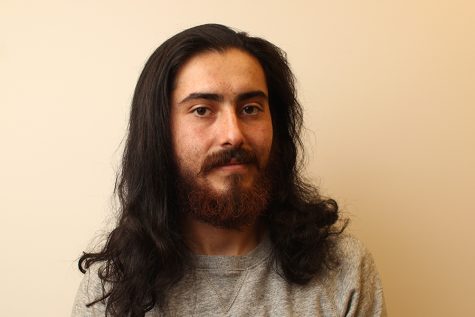Executive order aims to protect families
President Obama, undocumented immigrants under republican scrutiny
Dec 10, 2014
The undocumented parents of United State citizens, legal residents, were given a sliver of relief when President Barack Obama took a step toward immigration reform on Nov. 21.
Obama said he plans to issue an executive order that would temporarily halt the deportation of 4.7 million undocumented immigrants to a crowded auditorium at El Sol High School in Las Vegas, which was also streamed online.
This temporary initiative is not amnesty and only blankets immigrants who meet specific requirements and excludes more than 7 million undocumented people.
“This action does not grant citizenship,” Obama said during his speech. “All we are saying is not deport any more people and separate them from their kids.”
Since Obama’s speech, 17 states filed a lawsuit against the Obama administration for an alleged overreach of his executive power.
These states include Alabama, Georgia, Idaho, Indiana, Kansas, Louisiana, Maine, Mississippi, Montana, Nebraska, North Carolina, South Carolina, South Dakota, Texas, Utah, West Virginia and Wisconsin.
Contra Costa College’s La Raza Studies professor Agustin Palacios said while the executive order is a step toward immigration reform, Obama’s actions are limited and are within his constitutional rights.
Counselor Norma Valdez-Jimenez agrees with Palacios and added the executive order was issued too late into his term to initiate any lasting change or reverse the impact deportation has had on millions of undocumented people’s lives.
Psychology and humanities major Abigail Serano is currently enrolled at CCC.
Her parents are undocumented and immigrated here about 20 years ago.
Serano and her three siblings would be eligible to benefit from Obama’s proposed executive order.
It requires that an immigrant be in this country for five years without committing any crime, have children who are U.S. citizens or legal residents, pass a background check and agree to pay taxes.
Obama said, “If you do all these things you can apply to temporarily stay in this country without fear of deportation.”
Serano said she is “relieved” she no longer has to deal with the fear that has kept her awake at night while growing up.
“My dad pays taxes, has a job, has four kids and never committed a crime but because he is undocumented police could have overlooked these facts if the police stopped him for anything,” she said. “They could just take him away and that really scared me growing up.”
CCC political science professor, and member of the Black Alliance for Just Immigration, Leonard McNeil said the first step in developing a cohesive U.S. immigration policy is realizing that push and pull factors are key elements.
McNeil said the two key elements why people risk everything to immigrate here are for family reunification and economic opportunity. He said the current sentiment toward these peoples plight in this country is “discouraging” however.
“There is no law or policy right now that stops undocumented people from having to do the funkiest jobs at the lowest pay in the most hazardous conditions.”
He said this is not only an issue for Mexican immigrants and these inequalities are extended to people from Africa, Asia, the Caribbean, Central and Southern America, or elsewhere.
“The 11 million who immigrated to this country are part of the 270 million people who still live in their country of origin and can’t make a decent living because of socio-economic inequalities,” he said.
Immigration reform has become a more pertinent issue for Latinos however because they are the largest growing demographic in the country and have already become the ethnic plurality of students enrolled at CCC.
According to the California Community College Chancellor’s Office website, Latinos constituted the largest portion of students enrolled at CCC with 27 percent in 2009-10.
According to a recent demographic report by the Contra Costa Community College District, that number has risen to 37 percent.
There is no way to distinguish how many of these students are undocumented, Valdez-Jimenez said.
Palacios said the conservatives view the executive order as an “act of treason,” however every president has issued at least one since William Henry Harrison in 1840. He died of pneumonia one month after taking office.
He said, “Republicans often see this growing demographic and feel threatened. So instead of changing policies to help these people, they label them as a menace or scourge.”
McNeil said the GOP fear is stemmed from a nexus of racism and xenophobia and many people perceive undocumented immigrants as an economic threat.
“We live in a country that allowed Nazi war criminals to immigrate here after World War II and they received Social Security benefits. Why can’t we extend that opportunity to law-abiding people?”


